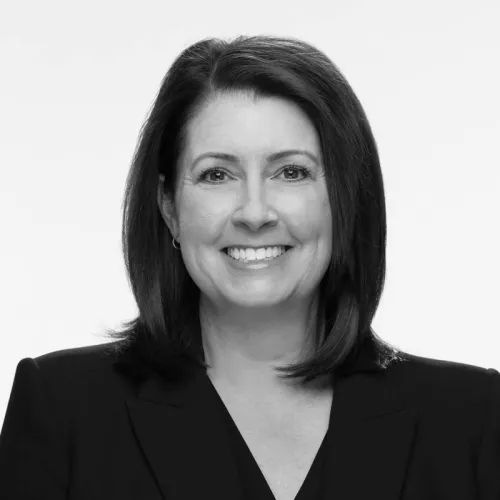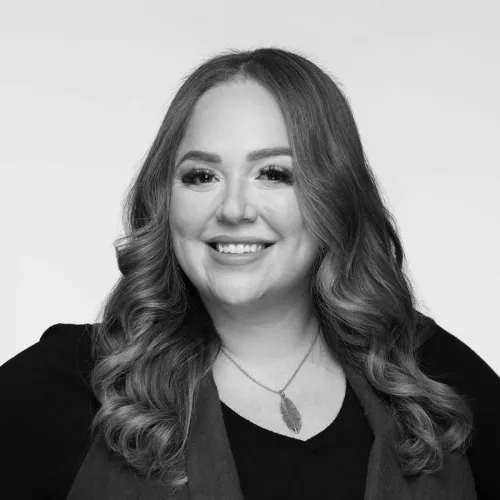Doubling Down on DEI
Doubling Down on DEI
Managing Partner Kristina Lawson and CDEIO Jennifer Martinez push back against attacks on DEI in this ALM | The American Lawyer Op-Ed.
The more things change, the more they stay the same—and we have to finally break out of that cycle. Recently, the nation’s discourse has been overtaken by a divisive conversation about the role of diversity, equity, and inclusion (DEI) programs in our workplaces and institutions. As leaders in a law firm that has been recognized nationally for our 65-plus-year commitment to making our firm and the legal profession more inclusive, we are compelled to speak out both to correct the pervasive misinformation about DEI programs and to publicly double down on our commitment to making the legal profession, and the communities where our employees live and work, better places.
Efforts to increase racial diversity in the workplace have been underway in this country for as long as our law firm has existed. DEI initiatives as we understand them today began in the 1960s as a byproduct of the Civil Rights Movement, with the implementation of various policies following the passage of Title VII of the Civil Rights Act of 1964 and the Equal Pay Act of 1963, which addressed discriminatory labor practices.
The current attack on DEI programs is not new—critics of DEI programs have existed for decades. It appears that those who oppose such programs do so with the goal of preserving the position of majority groups in places of power. When recently questioned about the lack of diversity in the legal profession, one activist who has made an entire career of attacking policies that seek to increase equity in our industry essentially admitted that he does not care about whether the legal profession has a place for everyone. Well, we do.
The attacks from DEI “opponents” are based on a fundamental misunderstanding—perhaps even an intentional misrepresentation—of what DEI is and is not. DEI programs are not quotas: they are not a mandate to hire or promote candidates with a certain racial background. They are not about teaching “white guilt,” and they are not reverse racism. Rather, DEI programs are about ensuring that recruiting, hiring, and employment processes are fair, and that workplaces are open and inclusive to all. The fact that such programs may result in more diversity does not mean that white employees are being discriminated against, it means there might have been systemic bias before.
Importantly, evidence-backed research shows that diversity actually fortifies our workplaces and sets businesses up for success. According to one study by Deloitte, companies that are inclusive have 22% lower turnover rates. The same study showed that inclusive teams are over 35% more productive. In terms of profitability, a McKinsey survey shows that companies that have diverse and inclusive workforces are 35% more likely to outperform their competitors. In other words, implementing programs that ensure workplaces are diverse, equitable, and inclusive is not just the right thing to do, it is also better for business itself.
There are many successful businesses like ours that recognize the benefits of a diverse workforce. Billionaire Mark Cuban, for instance, is a leader who recognizes the value of advancing diversity in his businesses. Cuban recently articulated his views about diversity, equity, and inclusion, saying in part: “We live in a country with very diverse demographics. In this era where trust of businesses can be hard to come by, people tend to connect more easily to people who are like them.”
And we wholeheartedly agree. Cuban’s observations are perhaps even more accurate in the legal profession, where the ability to connect with a diverse array of clients, witnesses, and members of a jury is critical. The more we make our workplaces look like the melting pot that is America, the better we become. Steps towards racial equity on a macro level can seem intimidating; however, when we model our labor practices on the kind of world we aspire to create—where everyone not only has the chance to have their voices heard and respected, but can also make the big decisions—it only leads us to becoming better collectively. And despite what critics might suggest, diversity, inclusion, and equity programs don’t lower the standards for entry—they broaden the potential excellence and talent we can bring together to bring our vision of a better workplace together.
At Hanson Bridgett, we are by no means perfect, and we certainly haven’t made all the progress we’d like to make in advancing diversity across the legal profession. We believe there is always room for improvement, progress, and greater understanding in the areas where diversity and equity may be lacking. It is disappointing but unsurprising that influential businessmen on social media have recently stood so boldly against something that has proven time and time again to be better for business and better for the good of us all.
DEI programs aren’t meant to bring us shame; they’re here to show us the ways we can become stronger. These programs are here to show us the way to a better world. We must stand against those who are insistent on keeping us stagnant and stand with those who bring us into the future. Like Cuban said: “Good businesses look where others don’t, to find the employees that will put your business in the best possible position to succeed.” Our own track record of diversity at Hanson Bridgett has certainly shown this to be true, and we’re proud to continue on this path, despite and in spite of opponents.
Click here to view the PDF from ALM
This article was published in ALM | law.com | The American Lawyer on January 24, 2024

